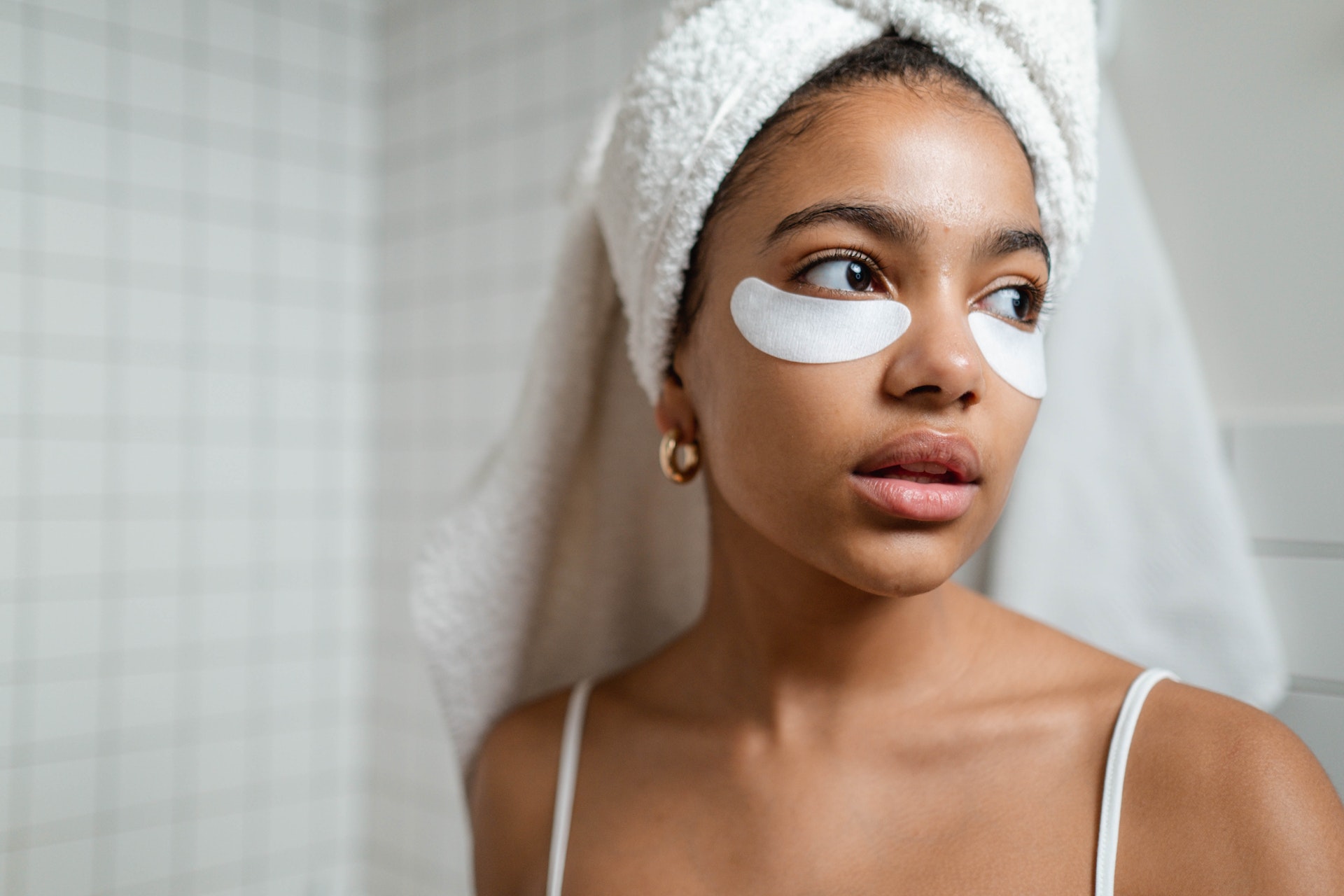Selfcare
Guilt-Free Self-Care: Nurturing Your Well-being with Ease
Understanding Self-Care
In today’s fast-paced and demanding world, taking care of ourselves often takes a backseat to our responsibilities and obligations. However, neglecting self-care can have serious consequences on our well-being. In this article, we will explore the concept of self-care, understand why it is crucial, and discover ways to embrace self-care without the burden of guilt.
What Is Self-Care?
Self-care refers to the intentional actions we take to nurture our physical, emotional, and mental well-being. It involves engaging in activities that promote self-nourishment, relaxation, and rejuvenation. It is not a selfish act but a necessary practice to maintain a healthy and balanced life.
Recognizing the Need for Self-Care
We often underestimate the importance of self-care, believing that putting ourselves first is selfish. However, neglecting our needs can lead to burnout, decreased productivity, and even physical and mental health issues. Recognizing the signs of burnout and acknowledging our own limitations is the first step towards embracing self-care.
Common Misconceptions about Self-Care
There are several misconceptions surrounding self-care that contribute to the guilt associated with it. Many people believe that self-care is a luxury or that it requires large amounts of time and money. However, self-care can be as simple as taking a few moments each day to focus on yourself and prioritize your well-being.
Overcoming Guilt Associated with Self-Care
Challenging Society’s Expectations of Selfcare
Society often glorifies the idea of constantly being busy and self-sacrificing. However, it is essential to challenge these expectations and understand that taking care of ourselves is not selfish but a fundamental necessity. By letting go of societal pressures, we can give ourselves permission to prioritize self-care without guilt.
Prioritizing Your Well-being
Putting ourselves first can feel uncomfortable, especially if we are used to taking care of others. However, by recognizing that our well-being matters, we can overcome guilt and embrace self-care as an act of self-love. Prioritizing our physical, emotional, and mental health is crucial for long-term happiness and fulfillment.
Setting Boundaries and Saying No
One common obstacle to practicing self-care is the inability to set boundaries and say no to others’ demands. Learning to assertively communicate our needs and limitations is essential for protecting our time and energy. By setting boundaries, we create space for self-care without feeling guilty or overwhelmed.
Implementing Self-Care Practices
Physical Self-Care
Exercise and Movement
Taking care of our physical health is an integral part of self-care. Engaging in regular exercise and movement not only improves our physical well-being but also releases endorphins that boost mood and reduce stress. Whether it’s a brisk walk, yoga session, or dance class, find an activity that brings you joy and make it a part of your self-care routine.
Nutrition and Hydration
Proper nutrition and hydration are vital for our overall well-being. Nourishing our bodies with nutritious foods and staying hydrated can improve energy levels, focus, and overall vitality. Consider incorporating whole foods, fruits, vegetables, and plenty of water into your daily diet to support your self-care journey.
Rest and Sleep
Adequate rest and quality sleep are essential for our physical and mental health. Make it a priority to establish a consistent sleep routine that allows for enough restorative rest. Create a peaceful sleep environment, practice relaxation techniques before bed, and ensure you allocate sufficient time for sleep to reap the benefits of rejuvenation.
Emotional and Mental Self-Care
Mindfulness and Meditation
Mindfulness and meditation are powerful tools for self-care. Taking time to be fully present in the moment and cultivate a sense of calm can reduce stress, anxiety, and promote overall well-being. Experiment with different mindfulness techniques and meditation practices to find what works best for you.
Journaling and Self-Reflection
Journaling is a therapeutic practice that allows us to explore our thoughts, emotions, and experiences. By putting pen to paper, we can gain clarity, process emotions, and cultivate self-awareness. Set aside regular time for journaling, and let your thoughts flow freely, without judgment or expectation.
Seeking Professional Help
Sometimes, self-care requires seeking professional help. If you find yourself struggling with emotional or mental health issues, don’t hesitate to reach out to a therapist or counselor. Seeking professional support is a courageous step towards prioritizing your well-being and receiving the guidance and assistance you may need.
Social and Relationship Self-Care
Nurturing Meaningful Connections
Human connections play a significant role in our well-being. Nurturing meaningful relationships and surrounding ourselves with supportive and uplifting individuals is an essential aspect of self-care. Invest time and energy in cultivating connections that bring you joy and support your personal growth.
Setting Healthy Boundaries
Setting healthy boundaries in our relationships is crucial for maintaining balance and self-care. Learn to communicate your needs and limitations effectively, and surround yourself with people who respect and honor those boundaries. By fostering healthy relationships, you create a supportive environment for your self-care journey.
Engaging in Activities You Enjoy
Engaging in activities that bring you joy and fulfillment is an essential part of self-care. Whether it’s pursuing a hobby, exploring creative outlets, or participating in recreational activities, make time for the things that make your heart sing. By incorporating activities you enjoy into your self-care routine, you nourish your soul and enhance your well-being.
Incorporating Self-Care into Daily Life
Creating a Self-Care Routine
To make self-care a consistent part of your life, consider creating a self-care routine. Designate specific times each day or week for self-care activities and commit to them. Whether it’s a morning ritual, an evening wind-down routine, or dedicated self-care days, having a routine helps ensure that self-care becomes a non-negotiable part of your life.
Finding Joy in Small Moments
Self-care doesn’t always require grand gestures or significant time commitments. It’s about finding joy and fulfillment in the small moments of everyday life. Take a few minutes each day to pause, appreciate the present moment, and engage in activities that bring you happiness. Whether it’s savoring a cup of tea, reading a book, or taking a relaxing bath, cherish the simple pleasures that contribute to your well-being.
Flexibility and Adaptability in Self-Care
Self-care is not a one-size-fits-all concept. It’s essential to be flexible and adaptable in your approach to self-care. What works for someone else may not work for you, and that’s okay. Explore different self-care activities, experiment with various techniques, and adjust your self-care practices based on your evolving needs and preferences. Embrace the journey of self-discovery and find what truly resonates with you.
Embracing the Benefits of Self-Care
Improved Physical and Mental Health
Engaging in regular self-care practices has a profound impact on our physical and mental health. By prioritizing self-care, we reduce stress, improve sleep quality, boost our immune system, and enhance overall physical well-being. Additionally, self-care practices promote emotional resilience, reduce anxiety and depression symptoms, and contribute to better mental health.
Enhanced Productivity and Focus
Contrary to popular belief, self-care does not hinder productivity but actually enhances it. When we take care of our physical and mental well-being, we experience increased energy, improved focus, and heightened creativity. By incorporating self-care into our routine, we become more efficient, motivated, and better equipped to handle the demands of daily life.
Building Resilience and Coping Skills
Self-care acts as a buffer against the challenges and stressors of life. It helps build resilience and equips us with coping mechanisms to navigate difficult situations. By regularly engaging in self-care, we cultivate emotional strength, develop healthy coping skills, and become better equipped to handle adversity and bounce back from setbacks.
Addressing Common Obstacles to Self-Care
Time Constraints and Busy Schedules
One of the most common obstacles to self-care is a perceived lack of time. However, self-care doesn’t have to be time-consuming or elaborate. By prioritizing self-care and making small adjustments to your schedule, you can carve out pockets of time for self-nourishment. Whether it’s waking up 15 minutes earlier, utilizing lunch breaks, or dedicating an evening each week to self-care, there are always opportunities to prioritize yourself.
Overcoming Guilt and Self-Sabotage
Guilt often accompanies self-care, particularly if we have been conditioned to prioritize others’ needs over our own. Overcoming guilt requires a shift in mindset and a recognition that self-care is not selfish but necessary for our overall well-being. Remind yourself that by taking care of yourself, you become better equipped to take care of others and fulfill your responsibilities.
Seeking Support and Accountability
Sometimes, it can be challenging to implement self-care practices consistently. Seeking support from loved ones or joining communities that value self-care can provide accountability and encouragement. Surround yourself with people who understand the importance of self-care and can provide support and motivation along the way.
Self-care without the guilt is not only possible but crucial for leading a balanced and fulfilling life. By understanding the true meaning of self-care, challenging societal expectations, and prioritizing our well-being, we can embrace self-care as an act of self-love. Implementing self-care practices, incorporating them into our daily lives, and reaping the benefits of improved physical and mental health becomes a reality. Let go of guilt, prioritize yourself, and embark on a transformative journey of self-nourishment and personal growth.
Frequently Asked Questions (FAQs) About Self-Care
FAQ #1: Is self-care selfish?
No, self-care is not selfish. It is essential for maintaining physical, emotional, and mental well-being. By prioritizing self-care, you ensure that you have the energy, resilience, and capacity to take care of yourself and others effectively.
FAQ #2: How can I find time for self-care?
Finding time for self-care requires making it a priority. Evaluate your schedule, identify pockets of time that can be allocated for self-care, and commit to them. Remember that self-care doesn’t have to be time-consuming; even small moments dedicated to self-nourishment can make a significant impact.
FAQ #3: What if I feel guilty when practicing self-care?
Guilt is a common barrier to self-care. Remind yourself that self-care is necessary and not selfish. Challenge the societal expectations and beliefs that contribute to guilt. Start with small self-care practices, and gradually increase your comfort level. Over time, you will realize that self-care benefits both you and those around you.
FAQ #4: How do I know what self-care activities are right for me?
Self-care is highly personal, and the activities that resonate with you may differ from others. Listen to your intuition and pay attention to what brings you joy, relaxation, and a sense of fulfillment. Experiment with various self-care practices and explore what works best for you. It’s a journey of self-discovery and finding what nourishes your mind, body, and soul.
FAQ #5: Can self-care help with stress and anxiety?
Yes, self-care is an effective tool for managing stress and anxiety. Engaging in self-care activities reduces stress levels, promotes relaxation, and provides an opportunity to recharge. By incorporating self-care into your routine, you can cultivate a sense of calm, increase resilience, and better cope with the challenges that come your way.






















